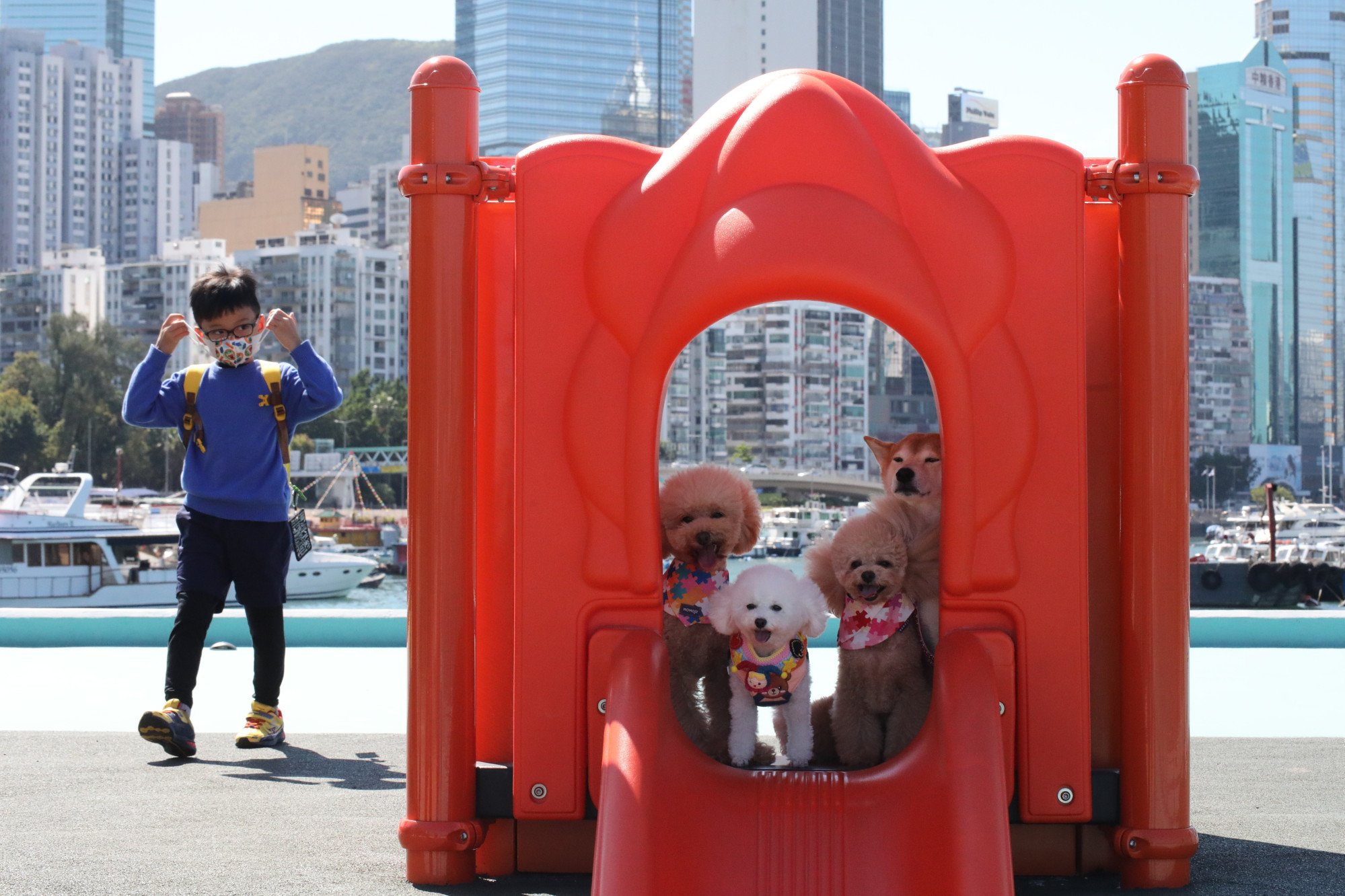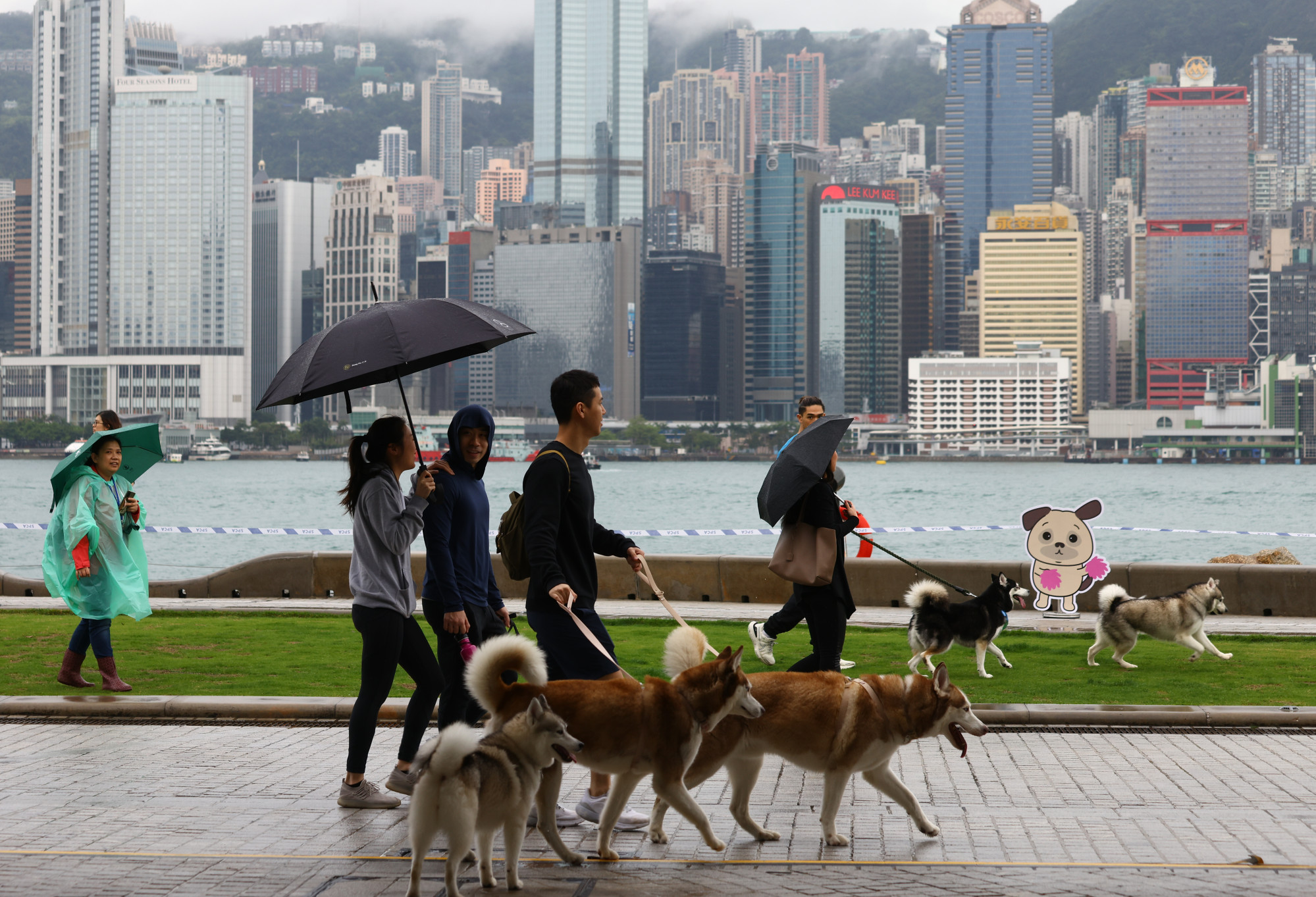
Is Hong Kong pet-friendly? Owners welcome new dog parks but want more areas open to furry friends
- More space for leashed dogs from June 13, when they will be allowed in 54 new inclusive parks
- City has 52 pet gardens and 116 inclusive pet parks out of more than 1,600 parks and gardens managed by the Leisure and Cultural Services Department
Hong Kong dog lovers have welcomed the government’s plan to open more pet-inclusive parks but said the city was still not pet-friendly enough.
They told the Post it cost time and money to take their pets out as dogs were barred from public transport and many restaurants.
They were responding to Thursday’s government announcement that there would be 54 new inclusive parks for pets from June 13.
In Hong Kong, dogs can run freely in pet gardens but must be on a leash in inclusive pet parks which are usually within larger green spaces.

The city has 52 pet gardens and 116 inclusive pet parks out of more than 1,600 parks and gardens managed by the Leisure and Cultural Services Department.
According to the latest available official data, there were 221,100 pet dogs in the city in 2018.
Zhao Yutong, 31, a public relations freelancer who had an 11-year-old Shiba she walked three times a day before relocating from Hong Kong earlier this month, said there was simply not enough space for dogs in the city.
“The nearest park that allows dogs is at least a 20-minute walk from my flat in Tai Kok Tsui,” said Zhao, who also complained about the cost of travelling with her dog.
“I don’t own a car. Every time I go out with my dog, I hire a taxi and have to make sure beforehand that the driver will be OK with having the dog in the cab. It is not convenient at all,” she said.
Trains and franchised buses in Hong Kong are not allowed to carry animals, except for guide dogs accompanying the visually impaired.
In London, dogs can travel for free on the London Underground and London Overground as long as they are leashed or in a crate or carrier. In Taipei, leashed dogs are allowed in any park.
Ken Chan Hiu-kwong, the owner of two Shibas, said Hong Kong was far from pet-friendly and what bothered him most was that his dogs were not welcome in most restaurants.
“Some restaurants have pet-friendly areas, but most are outdoors,” he said. “Will you eat outside with your dogs in the scorching summer and cold winter? It is torture for the dog and the human being.”
Under the Food Business Regulations, only guide dogs are allowed on food premises and flouting the rule can bring a fine of up to HK$10,000 (US$1,276) and three months’ jail.
Chan said: “If the government really wants to be pet-friendly, why not start by changing the regulations to adapt to the fact that Hong Kong has more pets now?”
Winnie Mak, the owner of a herding dog and a shih-tzu, was happy that Tung Lo Wan Garden in Causeway Bay would be an inclusive park from Tuesday.
“I walk my dogs in Tung Lo Wan Garden and Victoria Park,” said the 70-year-old retiree, who lives on Paterson Street. “Making Tung Lo Wan Garden pet-inclusive will make it much more convenient for me.”
Mak recalled it was misery walking her dogs before inclusive parks were introduced in 2019 with basic facilities such as dog poop bins and sinks for people to wash their hands.

But she was concerned that owners would not clean up after their pets as more inclusive parks opened.
“The government should impose heavier penalties for such uncivilised behaviour,” she said.
Osman Cheng Chung-hang, a dog owner and Sha Tin district councillor, said there was still much room for Hong Kong to be more pet-friendly.
Besides providing more space and making transport more convenient, he suggested testing and licensing all owners to ensure that dogs are in good hands and will behave in public areas.
“Everyone likes a well-behaved dog. With licensed owners, dogs will get better protection and might be more welcome in more public areas,” said Cheng, who has three dogs.
Additional reporting by Leopold Chen

